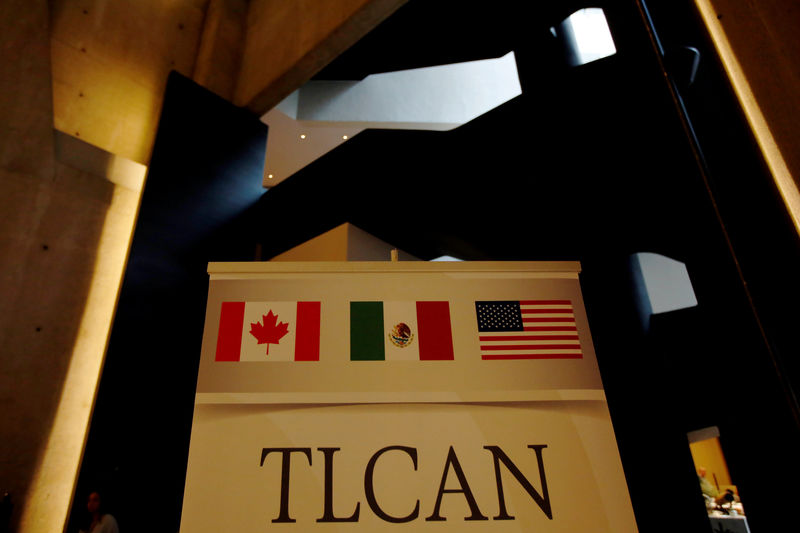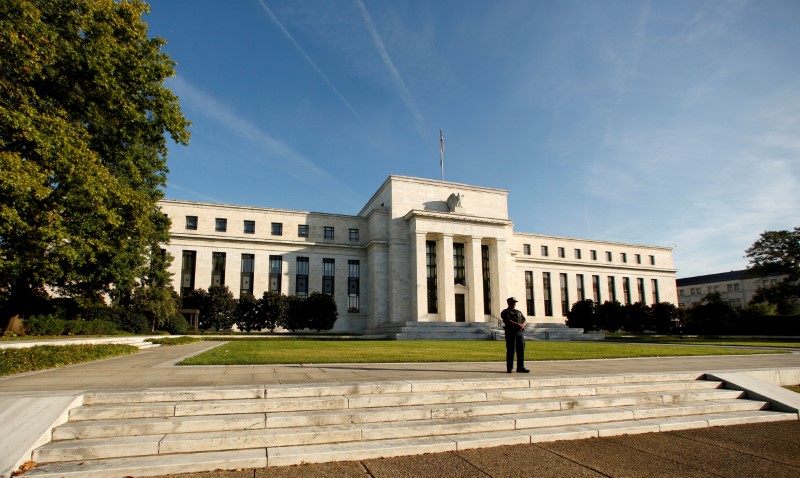
Mexico and Canada will survive current talks with the United States on trade relatively unscathed, according to a Reuters poll of economists, suggesting U.S. President Donald Trump's protectionist threats still have more bark than bite.
Trump's repeated attacks on the North American Free Trade Agreement (NAFTA), the world's largest trade area by gross domestic product, unnerved policymakers and exporters both north and south of the border given how much the countries have at stake.
The 23-year-old pact underpins over $1 trillion per year in trade between the three economies ranging from agricultural and industrial goods to intellectual property and environmental regulation.
NAFTA trade accounts for 39 percent of Canada's GDP and 49 percent of Mexico's, but just 5 percent in the case of the United States, the world's largest economy. Both Canada and Mexico sell more than three-quarters of their exported goods to the United States.
Still, economists say concerns about damage from the renegotiation may be overblown, with the most likely result of the talks being an updated trilateral agreement after many months or years.
The third round of discussions will begin in Ottawa on Sept. 23.
"Any changes will likely be incremental," said Brett Ryan, economist at Deutsche Bank(DE:DBKGn) in New York. "U.S. corporations, particularly automakers, would be at substantial risk of supply chain disruptions. The U.S. farm lobby would also be opposed."
Two-thirds of the 38 banks and institutions that responded to the poll expected the outcome of the renegotiation to be largely neutral or positive for both Mexico and Canada.
Changes are likely to encompass dispute settlement mechanisms, labor and environmental standards, supply-management protections and rules of origin, among other areas, and may have the biggest impact on the auto and agriculture industries, poll respondents said.
But the prospect of a radical swing toward protectionism seems unlikely, especially after a number of scandals and shaky support from the political establishment forced Trump to repeatedly dial back on his campaign pledges.
"A termination of NAFTA would pose hurdles for the U.S. government, certainly the U.S. president, and would also lead to harsh complaints from the private sector," said Jesus Lopez, an economist at Banco Base in Mexico City.
The most common response among the economists who track the Canadian economy was that talks would have a neutral economic impact. In the case of Mexico, the most common response was a positive reaction, which would extend a bullish trend seen in the first half of 2017.
Mexico's economy has been more resilient this year than expected while Canada's performance in the first six months of the year was its strongest in 15 years, prompting the Bank of Canada to raise interest rates this month for the second time in 2017.
LITTLE TO NO HARM
Although over 60 percent of the forecasters said they were "somewhat concerned" that Trump would make good on his pledge to scrap NAFTA, they expected the consequences to be rather limited even if that proved true.
Their remarks echoed comments by Mexican Finance Minister Luis Videgaray in a Reuters interview last week. Were NAFTA to be indeed terminated, Mexico would face an average trade tariff of 3 percent, Videgaray said - hardly enough to halt trading. In fact, it could even slap higher tariffs on imports of U.S. goods to compensate for the lost benefits, he added.
Canada, meanwhile, could revert to the Canada-U.S. Free Trade Agreement (CUSFTA), economists said.
"Whatever net negative may come out of the deal will be offset by the relief that the uncertainty is over," said Douglas Porter, chief economist at BMO Financial Group.
The survey highlights how Trump's protectionist trade rhetoric, which sent the Mexican pesoto an all-time low, has lost much of its punch.
The peso has recouped most of the recent losses and now ranks among the world's best-performing currencies this year, supported by the growing perception that Trump would be unable to enact much of the protectionism he had preached.
According to the poll, both the peso and the Canadian dollar are likely to brave the bouts of volatility largely unaffected. More than half of the 18 forecasters who responded said they expected Mexico's peso to appreciate as a result of the NAFTA trade talks outcome.
The Canadian dollar , by comparison, is forecast to remain steady as a result and is more likely to be driven by Bank of Canada policy, at least in the near term.

No comments:
Post a Comment